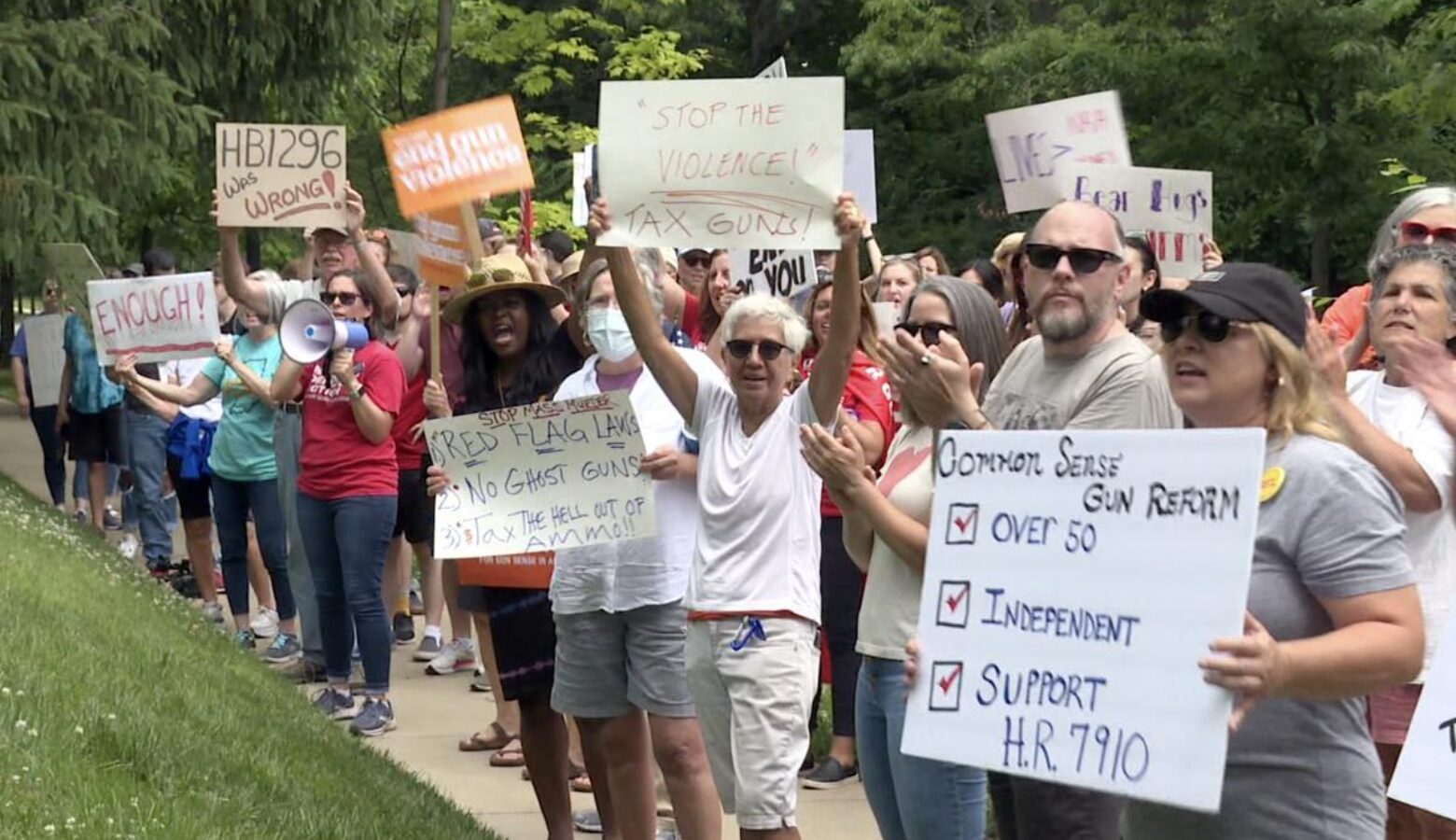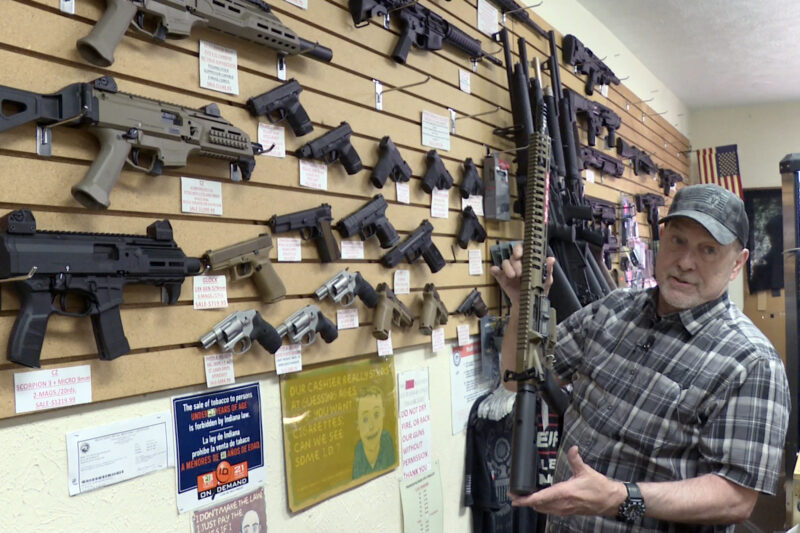Gun reform advocates wonder if permitless carry closes the door for future compromise

Recent mass shootings in New York and Texas have renewed the national conversation around gun reform. But in Indiana, access to guns is becoming easier.
Starting today, July 1, Hoosiers 18 and older can carry a handgun without a permit, except those with a felony conviction, who face a restraining order or have a dangerous mental illness.
Indiana now joins 24 other states that allow permitless carry of firearms. By next year, over half of all states will have some form of permitless carry legislation.
But Indiana’s new permitless carry law – and how it became law – has been far from controversial.
“Prior to this year, we and other organizations did a good job of fighting off kind of egregious bills,” said Jerry King, president of Hoosiers Concerned About Gun Violence, an Indianapolis-based gun control group. “Up until this year.”
The new law doesn’t change how guns are bought: if someone buys a gun from a dealer with a Federal Firearms License, they must undergo a background check. But private gun sales do not require a background check.
That’s what King and other gun reform advocates are concerned about – with the new permitless carry law, people who haven’t – or couldn’t – pass a background check could feel emboldened to carry guns in public, since they no longer need to go through the state to do so.
In the last two years, 13,000 Hoosiers have had their handgun carry permits rejected or revoked. 2020 and 2021 were record-setting years for homicides in Indianapolis.
Research on the effects of permitless carry laws is mixed.
But for King and other gun reform advocates, it just isn’t worth the risk.
“We think that’s just as dangerous and foolish as can be,” King said.

“It seems like more Republican- or conservative-led states are a little more understanding about the Constitution and what it means,” Strausburg said.
On the other hand, Mike Strausburg sees permitless carry as a big win for gun owners.
Strausburg is one of roughly one million Hoosiers with a carry permit. He also operates a gun store in Nashville, The Men’s Toy Shop, which offers a selection of pistols, rifles and shotguns for purchase.
He prefers the term “constitutional carry,” and says all it does is allow law-abiding Hoosiers to carry their weapons for personal protection.
“The Second Amendment says you should, as a citizen, be able to carry a gun,” Strausburg said. “Felons, they don’t care what the laws are. They’re gonna carry a gun.”
Yet Statehouse Republicans pursued the bill over objections from state law enforcement organizations. The Association of Chiefs of Police and Prosecuting Attorneys Council opposed the move.
Police have been preparing for the new law
Indiana State Police Superintendent Doug Carter even testified against the bill, slamming the GOP supermajority for “political posturing.” He said the state’s permitting system is often the most efficient way for officers to know who could be carrying a gun.
“It’s often so easy to talk about your support for public safety,” Carter said in February. “But if you choose to support this bill, you will not be supporting us.”
State Police Capt. Ron Galaviz said officials have been training troopers on the changes and how to navigate the new legal landscape.
“We have to go through another step or two in order to be able to run a criminal check,” Galaviz told the Associated Press. “We won’t necessarily be able to do it there on the side of the road.”
Being a longtime Hoosier, King understands the state’s conservative roots and respect for gun rights. But seeing the legislature disregard the opinions of law enforcement has left him disheartened and wondering if compromise on gun reform will be possible.
“Certainly no one is thinking about abandoning state level advocacy,” King said. “But right now, it feels like we ought to be investing some of our members’ energy and attention to the national level.”
President Joe Biden recently signed the most noticeable change to federal gun laws since 1994. The bill, called the Bipartisan Safer Communities Act, puts more funding toward red flag laws and mental health services.
In a surprise move, Republican U.S. Sen. Todd Young signed on.
On the state level, Democrats have asked to discuss gun laws during the upcoming special session. But GOP leadership has said it wants to focus on inflation relief and restricting abortion access.
READ MORE: Holcomb says response to Texas shooting should focus on school security, not guns
Despite the reluctance to pursue gun reform in recent years, Molly Barwick, Bloomington representative for Moms Demand Action on Gun Violence, says she is holding out hope for some sort of compromise, as legislators have shown a willingness to act on gun safety in the past – Indiana was the second state in the U.S. to implement a red flag law.
“There is still work we can do in Indiana,” she said. “The more I talk to people, gun owners and non-gun owners, about these issues, we all want to work to prevent gun violence.”
Even Strausburg, the gun store owner, says his views on gun rights have changed over the years. He’s come around to the idea of expanding background checks for private gun sales.
“How are you, John Q. Public that has a gun you want to sell, [able to] know the guy’s okay?” Strausburg asked. “You don’t.”
King, Barwick and other advocates say they’ll continue to push for gun reform in future sessions, though they aren’t expecting movement anytime soon. But they’ve been pleased to see many people at recent gun protests have been young.
“They’re understanding that you need to get out and you need to talk to your lawmakers, you need to campaign and work to elect officials,” Barwick said. “I am encouraged by that. They understand that at an earlier age than I did.”
The Associated Press contributed to this story.
